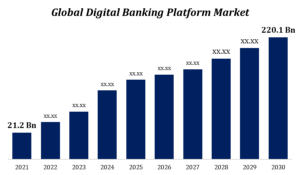Fintech Innovations in Managing Cryptocurrency Tax Compliance
The rise of cryptocurrency has transformed the financial landscape, offering new opportunities for investment and transactions. However, it has also introduced complexities in tax compliance that can be challenging for individuals and businesses alike. As governments and tax authorities around the world work to address the regulatory landscape for digital assets, fintech innovations are stepping up to streamline cryptocurrency tax compliance. This blog explores how fintech is revolutionizing the management of cryptocurrency tax compliance and highlights key tools and strategies that are making a significant impact.
Understanding Cryptocurrency Tax Compliance Challenges
Cryptocurrency tax compliance presents unique challenges due to the decentralized and often opaque nature of digital assets. Key issues include:
- Complex Transaction Tracking: Cryptocurrencies can be used for a wide range of transactions, including trading, staking, and DeFi activities, each with its own tax implications.
- Volatility: The rapid fluctuation in cryptocurrency values can complicate the calculation of gains and losses for tax purposes.
- Regulatory Uncertainty: Different jurisdictions have varying regulations regarding cryptocurrency taxation, creating confusion and compliance challenges.
- Record-Keeping: Maintaining accurate records of transactions, including dates, amounts, and counterparties, is essential for compliance but can be labor-intensive.
Fintech innovations are addressing these challenges by offering solutions that simplify tracking, reporting, and compliance.
Key Fintech Innovations in Cryptocurrency Tax Compliance
1. Automated Tax Reporting Platforms
Description: Automated tax reporting platforms use algorithms and data integration to calculate and generate accurate tax reports for cryptocurrency transactions.
Examples:
- Crypto Tax Software: Tools like “CoinTracker” and “Koinly” automatically import transaction data from various exchanges and wallets, calculate gains and losses, and generate tax reports that comply with regulatory requirements.
- Integrated Tax Solutions: Platforms such as “TaxBit” integrate with accounting software and tax filing systems to streamline the process of tax reporting and compliance.
Benefits:
- Accuracy: Automated calculations reduce the risk of errors and ensure compliance with tax regulations.
- Time Efficiency: Streamlined reporting saves time by automating data entry and calculation tasks.
2. Real-Time Transaction Tracking
Description: Fintech solutions provide real-time tracking of cryptocurrency transactions, allowing users to monitor their portfolio and tax implications continuously.
Examples:
- Portfolio Trackers: Tools like “Blockfolio” and “Delta” offer real-time tracking of cryptocurrency holdings and transactions, providing insights into potential tax liabilities.
- Transaction Aggregators: Services such as “CoinTracking” aggregate data from multiple sources to provide a comprehensive view of transaction history and tax implications.
Benefits:
- Timely Insights: Real-time tracking helps users stay informed about their tax liabilities and make informed decisions.
- Enhanced Transparency: Continuous monitoring provides a clear view of transaction history and potential tax impacts.
3. Blockchain-Based Solutions
Description: Blockchain technology itself is being leveraged to enhance transparency and accuracy in tax compliance.
Examples:
- Smart Contracts for Tax Compliance: Smart contracts can automate the process of tax withholding and reporting by executing predefined conditions based on transaction data.
- Immutable Records: Blockchain’s immutable ledger ensures accurate and tamper-proof transaction records, facilitating easier auditing and verification.
Benefits:
- Enhanced Accuracy: Blockchain’s transparency and immutability ensure accurate and verifiable transaction records.
- Automation: Smart contracts automate compliance processes, reducing manual intervention and errors.
4. Advanced Analytics and Machine Learning
Description: Advanced analytics and machine learning algorithms are being used to analyze large volumes of transaction data and provide insights into tax implications.
Examples:
- Predictive Analytics: Tools like “BearTax” use predictive analytics to estimate future tax liabilities based on historical data and market trends.
- Machine Learning for Fraud Detection: Machine learning algorithms detect anomalies and potential fraud in transaction data, enhancing security and compliance.
Benefits:
- Data Insights: Advanced analytics provide valuable insights into tax liabilities and help optimize tax strategies.
- Fraud Prevention: Machine learning enhances security by identifying and mitigating fraudulent activities.
5. Integration with Financial and Tax Planning Tools
Description: Fintech solutions are increasingly integrating with broader financial and tax planning tools to offer comprehensive support.
Examples:
- Tax Filing Integration: Platforms like “ZenLedger” integrate with tax filing software to simplify the process of submitting tax returns and ensuring compliance.
- Financial Planning Tools: Integration with financial planning tools allows users to manage their cryptocurrency investments in the context of their overall financial strategy.
Benefits:
- Holistic Management: Integrated solutions provide a comprehensive view of financial and tax planning, facilitating better decision-making.
- Seamless Filing: Integration with tax filing systems streamlines the submission process and ensures compliance.
Challenges and Considerations
1. Navigating Regulatory Variations
Description: Different jurisdictions have varying regulations regarding cryptocurrency taxation, and fintech solutions must adapt to these differences.
Challenges:
- Compliance Variability: Ensuring that tax reporting tools comply with diverse regulatory requirements across different countries.
- Updating Regulations: Keeping up with evolving regulations and incorporating changes into fintech solutions.
Consideration:
- Localized Solutions: Developing and updating fintech solutions to address specific regulatory requirements in different jurisdictions.
2. Data Privacy and Security
Description: Ensuring the privacy and security of sensitive financial and personal data is crucial for fintech solutions.
Challenges:
- Data Protection: Safeguarding user data from breaches and unauthorized access.
- Regulatory Compliance: Complying with data protection regulations, such as GDPR or CCPA, in addition to tax regulations.
Consideration:
- Robust Security Measures: Implementing strong encryption and security protocols to protect user data and maintain compliance.
The Future Outlook
The future of fintech in cryptocurrency tax compliance holds exciting possibilities:
1. Enhanced Automation and AI Integration
Description: Continued advancements in automation and AI will further streamline tax compliance processes.
Trend: Increased use of AI and machine learning to enhance accuracy, predict tax liabilities, and automate complex compliance tasks.
2. Greater Regulatory Integration
Description: Fintech solutions will increasingly integrate with regulatory frameworks and tax authorities to facilitate real-time compliance.
Trend: Enhanced collaboration between fintech companies and regulatory bodies to ensure seamless compliance and reporting.
3. Expansion of Blockchain Solutions
Description: The use of blockchain technology for tax compliance will expand, offering more transparent and efficient solutions.
Trend: Growth in the adoption of blockchain-based smart contracts and immutable records for tax reporting and compliance.


































